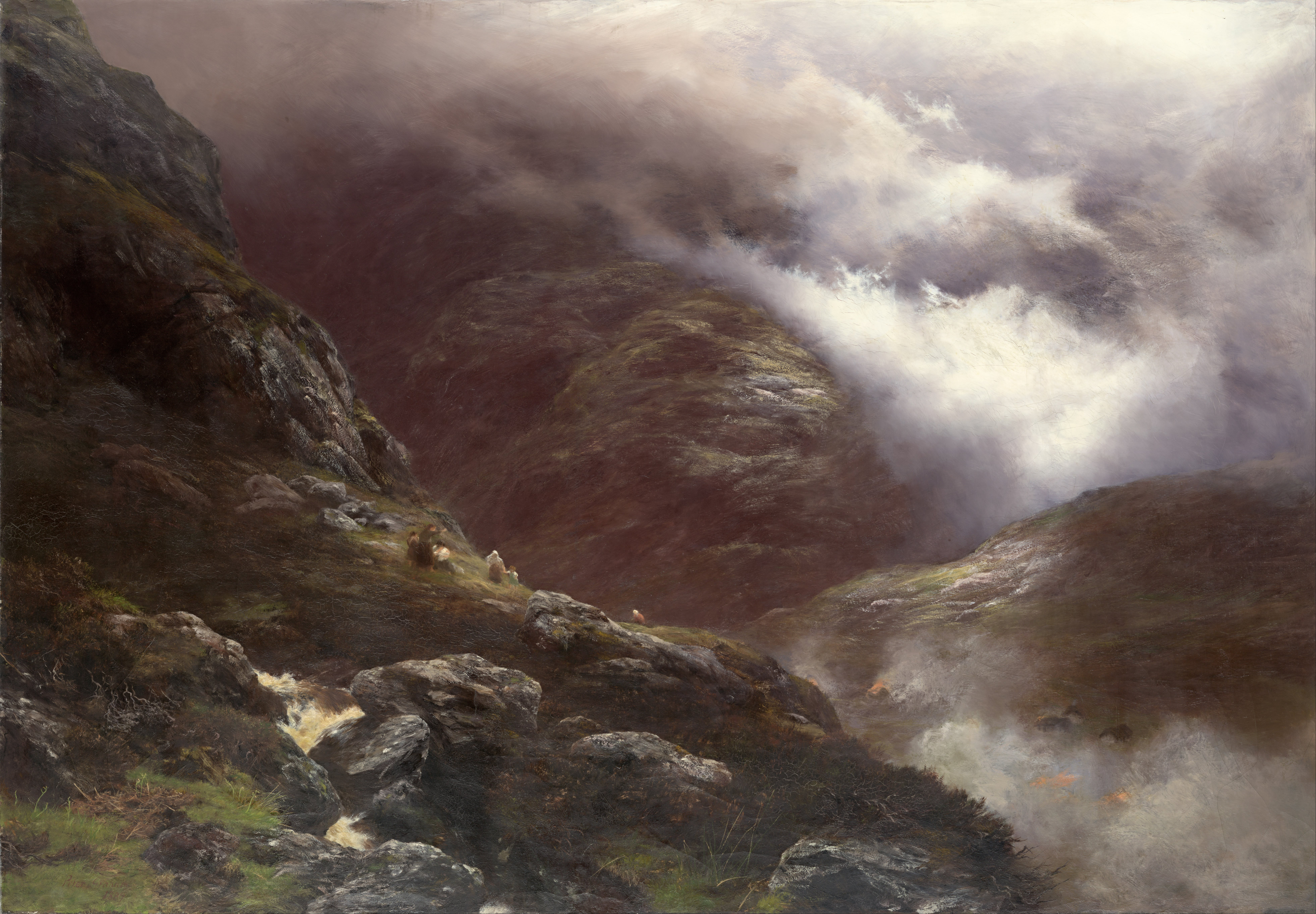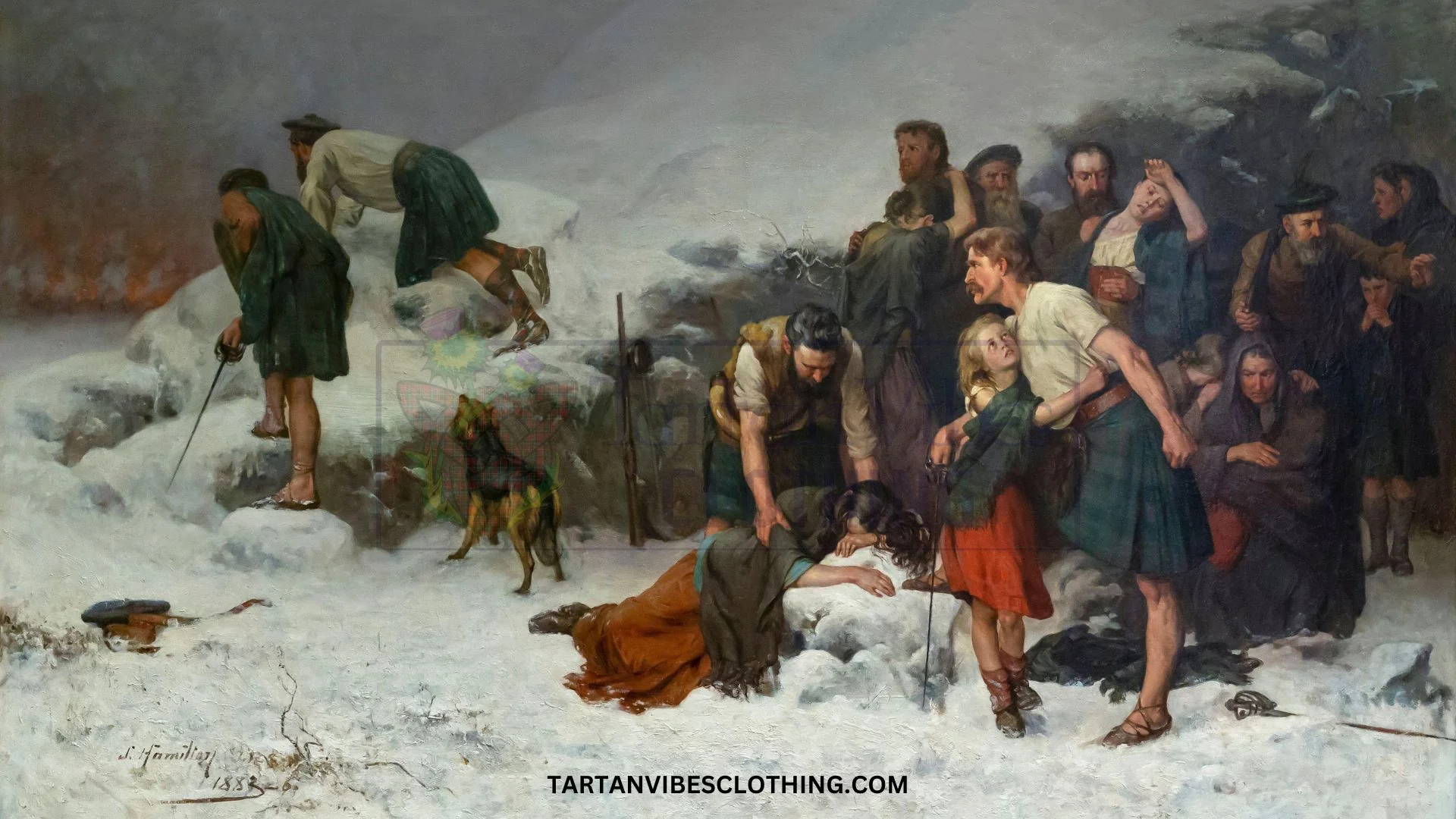Table of Content
Why is the Campbell Clan Hated?
The name Campbell holds a weighty significance in Scottish history, evoking pride and loyalty among its members and deep-seated resentment and hatred from other clans. This dichotomy stems from centuries of tumultuous events that have shaped perceptions of the Campbell Clan. The hatred towards the Campbells can be traced to historical conflicts, betrayals, and political machinations.
Why is the Campbell Clan hated? This article explores the intricate factors contributing to its infamous reputation, emphasizing key events such as the Massacre at Glencoe that serve as critical points of contention.
Historical Background of the Campbell Clan
The story of the Campbell Clan stretches back several centuries, marked by their rise to power and substantial influence within Scotland.
Overview of the Campbell Clan
Originating in the late 13th century, the Campbell Clan emerged as one of Scotland's most influential families, claiming the title of the Duke of Argyll. Strategic marriages, alliances, and military prowess characterized their rise to prominence. Colin Campbell of Lochow was pivotal in shaping the clan’s early reputation. As they expanded their territories, they became entangled in the complex web of Scottish clan politics.
The Campbells were not merely passive participants; they seized opportunities to strengthen their position, often at significant cost to their rivals. Their ambitions stirred up envy and resentment among other clans, especially those at odds with the Campbells' relentless quest for power.
Geographical Influence

The Campbell Clan's geographical stronghold was Argyllshire, located along the western coast of Scotland. This region allowed them access to important trade routes, coastal resources, and fertile lands. Over time, they extended their influence throughout Scotland, acquiring large estates and strategically positioning themselves as power brokers.
Their control over territory enabled the Campbells to exercise authority over local governance, which further solidified their status. However, this expansion came with a price: it bred fierce rivalries with neighboring clans, laying the groundwork for a legacy steeped in conflict and hate.
Historical Influence
The history of the Campbell Clan is intertwined with the broader narrative of Scottish history. They played pivotal roles throughout the centuries during significant events such as the Wars of Scottish Independence, the Protestant Reformation, and the Jacobite uprisings. Each engagement shaped the Campbell identity, creating a perception that they often aligned with the prevailing powers at the expense of their fellow Scots.
Notable figures like Archibald Campbell, the 5th Earl of Argyll, were prominent in the Scottish Reformation, influencing clan politics and national affairs. Their steadfast loyalty to the British Crown during national strife has left a lasting mark on how they are perceived today. While the Campbells viewed their actions as pragmatic, others interpreted them as betrayal, feeding the narrative of the Campbells as dangerous and evil.
The Massacre of Glencoe: A Pivotal Event
Among the multitude of events that fuel the hatred toward the Campbell Clan, the Massacre of Glencoe stands out as a particularly heinous episode that is inseparably linked to their legacy.

Background and the Event
In February 1692, Scotland was enveloped in political turmoil following the Glorious Revolution, which had placed William of Orange on the throne. Tensions ran high between supporters of the new regime and those loyal to the deposed James II. The MacDonald Clan of Glencoe had received a royal pardon due to their late submission to the authorities. However, a crucial delay in delivering the official document allowed the Campbell Clan to act.
When the Campbell soldiers arrived in Glencoe under the guise of hospitality, the unsuspecting MacDonalds met them with open arms. The Campbells were welcomed into their homes, sharing meals and forging bonds while harboring ulterior motives. On the morning of February 13, 1692, the Campbells launched a brutal attack on the MacDonald Clan. In the dead of winter, unsuspecting families were awoken to the sounds of violence as armed soldiers ruthlessly slaughtered unarmed men, women, and children. It is estimated that around 38 MacDonald's lives were taken in the massacre, with many more dying from exposure in the harsh winter conditions following the attacks.
The Glencoe Massacre represents the epitome of betrayal—where bonds of kinship and trust were severed in pursuit of political gain. Survivors fled into the mountains, seeking refuge from the relentless assault. The sheer brutality of the action shocked the nation and left an indelible stain on the Campbell Clan's reputation.

Aftermath and Lasting Legacy
In the aftermath of the Glencoe Massacre, the Campbells faced widespread condemnation. The event did not just ignite enmity between the Campbells and the MacDonalds; it reverberated throughout Scotland, hinting at the betrayal and ambition that characterized the Campbells' rise to power.
The massacre became emblematic of the Campbells' legacy of cruelty, serving as a powerful reminder of the lengths to which they were willing to go to maintain their dominance. Even centuries later, the Glencoe Massacre continues to haunt the Campbell Clan, with modern-day descendants grappling with the implications of their ancestral actions.
Political Alliances and Notable Betrayals
Government Alliances
Throughout history, the Campbells have maintained strong ties with the British Crown, often through strategic marriages and political maneuvering. These alliances positioned them as influential players in the Scottish Parliament. Their steadfast loyalty to the British government, especially during politically turbulent times like the Jacobite uprisings, alienated them from the wider Scottish populace. Many Scots saw the Campbells as collaborators who prioritized power and privilege over loyalty to their fellow citizens.
A prominent example of this perceived betrayal was the Campbells' involvement in the Act of Union 1707, which unified Scotland and England under a single government. While the Campbells viewed this political move as a pragmatic decision, many Scots perceived it as a betrayal that compromised Scotland’s sovereignty and autonomy.
Specific Instances of Betrayal
Several key events underscore the Campbells' reputation for betrayal. During the Jacobite rebellions, the Campbells actively opposed their fellow Scots by siding with British forces to suppress the uprisings. Their involvement in the defeat of the Jacobites at the Battle of Culloden in 1746 solidified their status as adversaries of the Jacobite cause and staunch supporters of the British monarchy.
Such actions reinforced the perception of the Campbells as self-serving opportunists, willing to forsake their Scottish heritage and kinship ties for personal and political gain. This history of double-dealing has deepened fractures within Scottish society and perpetuated the narrative of hatred towards the Campbell Clan.

Feuds, Rivalries, and Land Conflicts
The Campbell Clan's history is marked by intense feuds and rivalries that have significantly shaped its reputation. Over the centuries, these hostilities have defined its relationships with other clans, creating an environment of suspicion and enmity.
Rivalries with Other Clans
The Campbells frequently conflicted with neighboring clans, most notably the MacGregors and the MacDonalds. Disputes over land, resources, and political influence drove these rivalries. One of the most notorious feuds was the longstanding rivalry with the MacGregors, characterized by bloody skirmishes and relentless hostilities. The Battle of Glen Fruin against the MacGregors is a prime example of these clashes. Such conflicts perpetuated the image of the Campbells as ruthless adversaries eager to consolidate power at any cost.
Land Disputes
Land disputes were central to many conflicts involving the Campbell Clan. Their aggressive pursuit of land acquisition often led to confrontations with other clans, escalating tensions and fostering resentment.
As the Campbells expanded their land holdings, they frequently encountered resistance from clans who saw these actions as encroachments on their ancestral territories. The Campbells' use of legal means, such as forfeiture or purchase, to acquire land fueled suspicions of collusion with external powers, including the British Crown. This perception of exploiting legal mechanisms for personal gain cemented their status as opportunistic rivals in the eyes of many.
Impact on Reputation
The impact of these feuds and land disputes on the Campbell Clan's reputation was significant. They became synonymous with the ruthless pursuit of power, often at the expense of their rivals. These conflicts not only solidified the Campbells' position as a formidable force in Scottish history but also entrenched the narrative of the Campbells as villains, further perpetuating animosity towards the clan.
The Campbell Clan's Legacy Today
Modern Perception
Cultural Significance
The Campbell Clan's cultural significance extends beyond its historical reputation. Despite controversies, their contributions to Scottish society, including patronage of the arts and architecture, are noteworthy aspects of their legacy. Inveraray Castle, for instance, stands as a testament to their architectural patronage and influence. The Campbells played a pivotal role in shaping Scotland's cultural and political landscape.

Reconciliation Efforts
The Campbell Clan's Influence on Modern Scottish Culture
Literature and Folklore
Tourism and Heritage
Heritage Preservation
Explore the timeless traditions of the Clan Campbell through our collection of tartan products on our website. And bring a piece of the clan's history into your present. 💝
The Role of the Campbell Clan in Scottish Identity
Contributions to the Scottish Society
Reflection of National Struggles
Moving Forward: A Balanced Perspective
Reassessing Historical Narratives
Promoting Dialogue and Understanding
Promoting dialogue and understanding between the descendants of the Campbell Clan and those of their historical rivals is a step toward reconciliation. Events such as commemorations, historical reenactments, and academic conferences provide opportunities for discussion and reflection. These initiatives foster a deeper understanding of the shared history and common heritage that binds the Scottish people.
Conclusion
The Campbell Clan's legacy remains a powerful testament to history's enduring impact on contemporary society. By exploring why the Campbell Clan is hated, we gain a deeper appreciation for the richness of Scottish history and the intricate narratives that have shaped it. Understanding the reasons behind the hatred towards the Campbells allows us to reflect on broader themes of loyalty, betrayal, and identity that continue to resonate in the modern world.
Embracing a balanced perspective and promoting dialogue will help us honor the past while building a more inclusive and understanding future. With all its intricacies, the Campbell Clan's story remains a vital part of Scotland's heritage, reminding us of history's enduring power to shape our present and future.
Frequently Asked Questions
What is the controversy with the Campbell clan?
The hated Campbells are best known for the massacre at Glencoe at the ancestral lands of Clan MacDonald. In the early hours of February 13, 1692, 36 MacDonalds were slaughtered -- including women and young children -- after they had welcomed the Campbells into their homes.
Why does Scotland hate Campbells?
The clan was involved in many key events in Scottish history, including the Wars of Scottish Independence and the Jacobite Risings. During the Jacobite Risings, the Campbells were loyal to the British crown and fought against the rebels. This earned them the nickname "The Bloody Clan" from their opponents.Why does Scotland hate Campbells?
What is the most feared clan in Scotland?
Number one is Clan Campbell of Breadalbane. The feud between the MacGregors and the Campbells is well documented but Sir Malcolm said this strand of the Campbells was particularly feared given its dominance over a large swathe of Scotland - and its will to defend it at all cost.
What is Clan Campbell known for?
The Campbells gave support to the Crown throughout the 15th century. By the end of the 15th century, the power of the Lords of the Isles (chiefs of Clan Donald), the Crown's most powerful rivals, had been broken, and the Campbells were the main power in the area.
Why is the Campbell Clan hated?
The Campbell Clan's history is marked by conflicts, betrayals, and political machinations, leading to deep-seated resentment and hatred from other clans.







